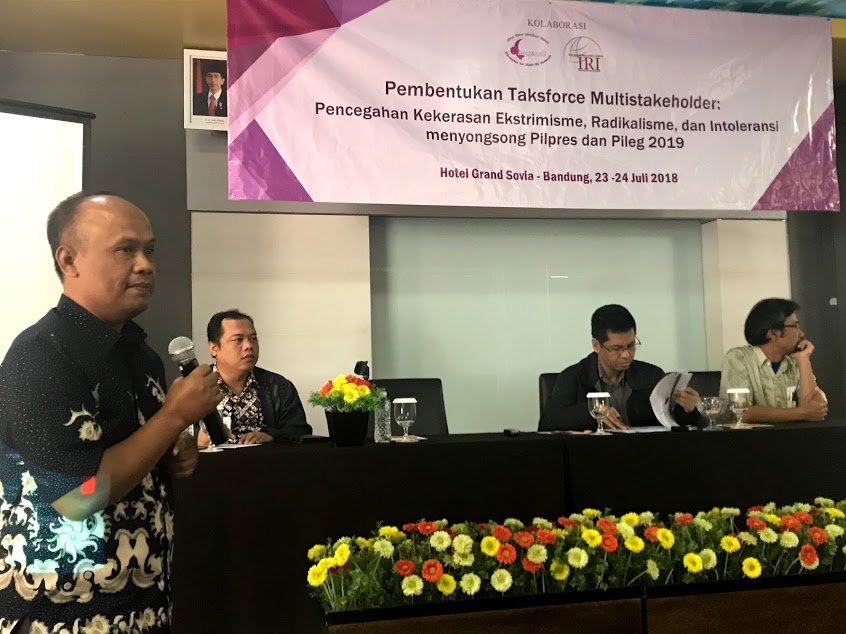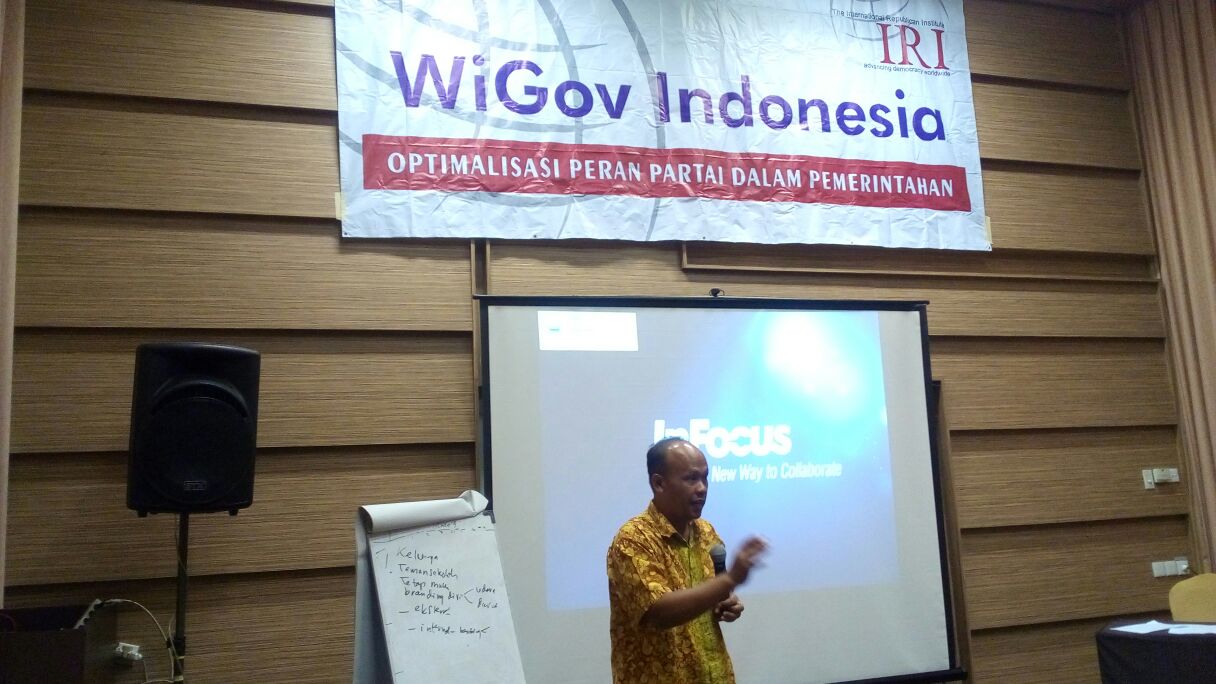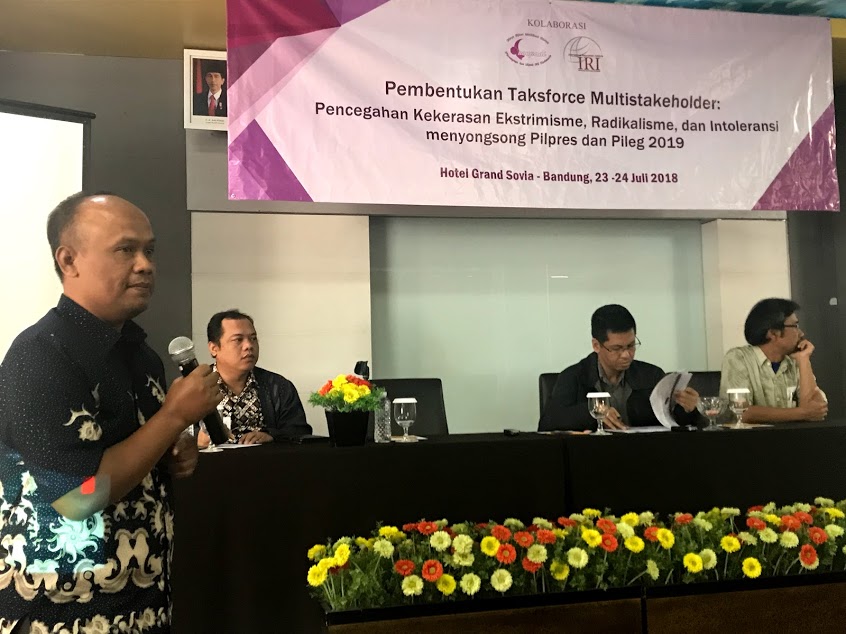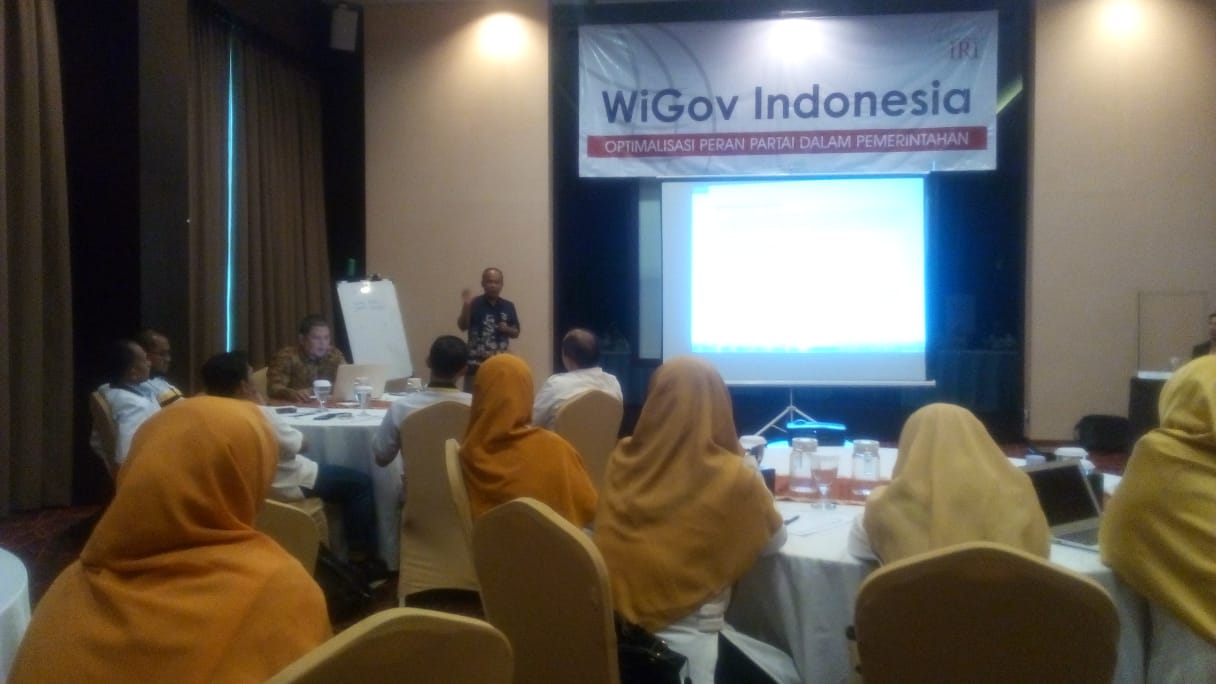
Kerkan Wignyawinata began his career in international democracy development with IRI in 1998. At the time, Indonesia was facing a falling economy, student-led protests and ongoing conflict in Timor-Leste.
As the world’s largest Muslim-majority country and third largest democracy, Indonesia is a key ally of the United States in South East Asia. Indonesia has proven itself to be a strong economic and democratic leader in the region and is a strategic partner to the United States in advancing democracy throughout Asia.
Throughout his time at IRI, Kerkan has witnessed the steady growth of Indonesia’s democracy, from its first free and fair parliamentary elections in 54 years in 1999, to becoming one of the strongest democracies in Southeast Asia. Kerkan has dedicated his career to strengthening democratic governance, civil society and representative political parties in Indonesia. To further understand the extent of Kerkan’s impact on Indonesia’s programming, he sat down for some questions about his time with IRI.

For 20 years, you have worked with political parties, civil society, women and youth in Indonesia to improve governance within the country. Can you explain how governance and democracy in Indonesia have evolved since you began working with IRI?
In the past 20 years that I worked at IRI, there has been significant progress in Indonesia’s democracy and governance capability. It is amazing what Indonesian democracy has achieved in its second decade. Freedom of speech and direct elections are concrete examples of ways Indonesian democracy is progressing.
Working at IRI in Indonesia strengthening Indonesian political parties and local parliaments for the past 20 years has given me self-pride in being involved in the continuing development of Indonesia’s democracy.
What does the word democracy mean to you?
Democracy is from the people, by the people and for the people. This means people have the full responsibility to decide who will govern them and how they will be governed. As democracy is an evolving process, there will always be room for improvement. Despite some problems that Indonesian democracy has faced, its direct election process has born many inspirational leaders that the country would never have had under a totalitarian regime, such as current President Jokowi, Surabaya’s first female mayor Risma, West Java Governor Ridwan Kamil and many other democratically elected leaders.

What has been the single most important or influential lesson you have learned through your work?
I think recent research on local drivers of violent extremism in Central Java and West Java are the most important lessons for me. I learned a lot from this research, not only about drivers of violent extremism in Indonesia, but also how Indonesian democracy is becoming more vulnerable in the face of increasing religious intolerance and violent extremism. The right to freedom of speech in Indonesia has been abused by some parties, using speech to conduct black campaigns and write fake news reports. Combatting hate speech and fake news is the newest challenge for Indonesian democracy. Twenty years of democracy development is at stake if Indonesia and other stakeholders are not united in addressing this problem.
What excites you most about Indonesia’s future?
If this question was asked to me five years ago, I would have been excited about Indonesia’s democracy heading in the right direction. There has been a growing media presence and larger number of civil society organizations working to safeguard Indonesia’s democracy from failing.
But to answer this question now, I must be honest and say it is difficult to answer. The reason for this is because I think Indonesia’s democracy is facing a number of very tough challenges with the increasing presence of identity politics, hate speech and fake news. Indonesians need to work together to protect our democracy from these problems and ensure a free and democratic Indonesia will continue.

What would you consider your biggest accomplishment?
My biggest accomplishment was managing the Aceh direct election in 2017. We had a very short period of time to train party agents, yet we were able to surpass our own expectations and trained over three thousand party agents.
Another accomplishment I am equally proud of is the facilitation of an Ambon City Taskforce to address corruption in citizen I.D. offices following a mandate for all citizens to carry national identification cards. The citizen leaders in the taskforce worked to complete recommendations from a Vulnerabilities to Corruption Approach report and address the issues of corruption in the citizen I.D. offices, taking the steps necessary to end and prevent further corruption.
What has been one of your favorite memories while working at IRI?
I have a lot of really great memories from working at IRI, so it is difficult to choose just one! If I had to pick, my favorite memory would be developing community-based programs or programs beyond the classroom. My favorite events were the facilitation of hundreds of multi-stakeholder volunteers to run the Coalition for Peaceful Bali after the 2002 Bali Bombings, and the facilitation of a Public Initiative Taskforce to address public issues. This kind of programming has always been the most challenging for me but has also had the most positive effect on social and political dynamics.
Kerkan has proven himself to be an essential part of IRI’s Indonesia office with a wealth of knowledge and experience. IRI is grateful to have such a dedicated, hardworking and loyal staff member running our country programming in Indonesia. Thank you, Kerkan, for all you have done, and we look forward to seeing how your work progresses with IRI!
Top